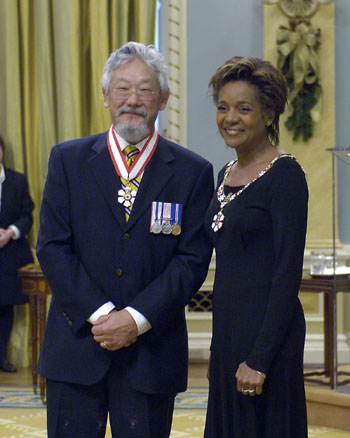The new NANOS poll provides some good news for the Liberals. First the results, but then a word of caution in allowing these numbers to act as the leadership security blanket.
National:
Libs 34
Cons 33
NDP 15
Bloc 11
Greens 8
Not really much difference from NANOS' last poll, small erosion for both the Libs and Cons, Bloc up, Greens up, NDP the same.
What has changed, NANOS' Ontario numbers are now more in line with other pollsters, the Liberals 18% lead is now reduced to 10%, which is far more believable. The Liberals at 50% in Ontario was nice, but that always seemed a tad high:
Ontario:
Libs 43%
Cons 33%
NDP 17%
Greens 7%
A bright spot for the NDP, their numbers recovering from a dangerously low 13% last month.
However, the Quebec numbers now show the NDP in a distant fifth place, using a slightly bigger sample size than the last NANOS offering:
Bloc 40%
Cons 23%
Libs 22%
Greens 9%
NDP 5%
That represents an 8% drop for the NDP, from their high water mark, and much of that erosion seems to benefit the Bloc and the Greens. The Liberal numbers tend to mirror all the other polls, while the Conservative total is somewhat less than the Quebec only polls. All I can say on that score, these national polls that understate Conservative support, relative to the bigger Quebec only polls, actually had a good predictive record in the last election, so their findings shouldn't be dismissed out of hand.
In the "West", whatever that is, the Conservatives are down considerably, Liberals up, NDP to a lesser degree. I suspect some of that is related to British Columbia, but that conclusion is buried in this irrelevant "West".
So, if you do the regional breakdowns, you could actually argue the Liberals would win more seats, this tie looks slightly better on an electoral map. A stronger Bloc hurts the Conservatives, a strong lead in Ontario is obvious gold for the Liberals, and the east is positive, looks to be pockets in the west.
My friend Scott Tribe, refers to this poll as the
pepto bismol of polls, helping to quell the nervousness that comes from reading other results. That sentiment seems to be fairly common, NANOS makes everyone feel better, it tends to overshadow other results that are less positive. I have a couple thoughts on this score.
I didn't really get excited about the Angus poll yesterday, in terms of the national numbers, it looked like the gap was more just margin of error noise, than any trend. Maybe this poll understates the Liberal support, but you could argue problems with other outfits, so it is more a question of their own internal trends, than objective read, relative to others. People can question the result, but I'm frankly tired of the typical "online" comment, which never brings any factual evidence to the table, ignores the concrete counter, based on real results, and just repeats the baseless bias. In other words, put up or shut up. Please :)
Where my caution lies, and I don't mean to highlight Scott, but I think his comment on the post speaks to a wider problem:
throw in leadership polls that show Dion doing poorly, and predictably, we get some Liberal bloggers getting heartburn and demanding either the leader resign or else be upended in a palace coup or else claim this shows Canadians won’t listen to Dion’s message in an election - specifically on a carbon tax. The next day, Nanos polling comes out with much more close numbers, and that usually calms the “nervous nellies”...
"As I said over here in comments, people elect political parties in Canada - they don’t elect presidents."
Scott argues that NANOS is the leadership elixir, but in reality, the opposite is true. The last NANOS leadership poll had Dion at an abysmal 11% on the competency question, completely in line with Angus, completely consistent with EVERY other poll. While you can correctly argue the national numbers, don't extrapolate NANOS as some reason to stop worrying about leadership. In fact, NANOS says the Liberals should be worried about leadership, his findings completely reinforce other findings.
I say this, because I think it a dangerous mistake moving forward to not recognize the challenge ahead, to not accurately understand just where Dion is at, and how ultimately that could make perceived strong party numbers less reliable. Yes, we elect parties, but every party has a face, and if you don't like that face, you are less likely to vote for that party, especially outside of the core brand support. Better to admit that Dion is at a worrying bottom, than console yourself in the horserace numbers. That isn't to say the numbers aren't good news for the Liberals, worrying trends for the Conservatives, only it isn't the only question, the only part of the equation.
What this poll tells me, if Dion can get his act together, nothing exceptional, just a measure of projecting confidence and leadership, the Liberals are poised to win the next election. If Dion remains at such a low leadership score, then any perceived brand strength is part mirage, or flimsy. A national campaign demands a credible leader, so I argue this to make sure everyone remains focused on the achilles heel, we don't get comfy, because a real problem still exists.
I'm somewhat optimistic, actually moreso than I have been in months, because I think this tax shift plan is a real opportunity. But, let's not forget where Dion is, because that will, in the end, in my opinion, be the make or break factor in the next election.


